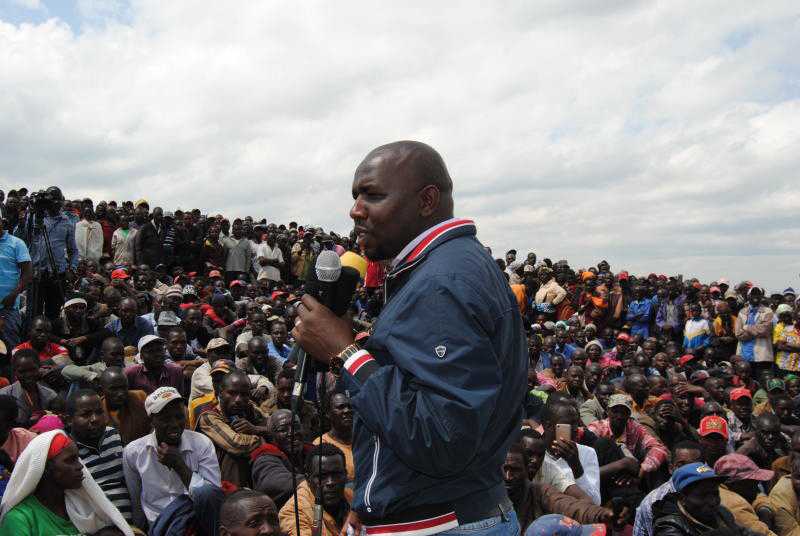
Elgeyo Marakwet Senator addressing hundreds in Narok County. Jubilee leaders have blamed 2022 politics over Mau evictions. [Robert Kiplagat/Standard]
No matter one’s political affiliations in Kenya’s fragmented political dystopia, few can fail to cringe at the heartbreaking pictures of people displaced from Kibera and Mau Forest. Mothers’ backs hunched over with the burden of household goods rescued from tenements; children clutching books from the remains of their school... This tableau of despair, hopelessness, pain and indignity shocks the core of our humanity.